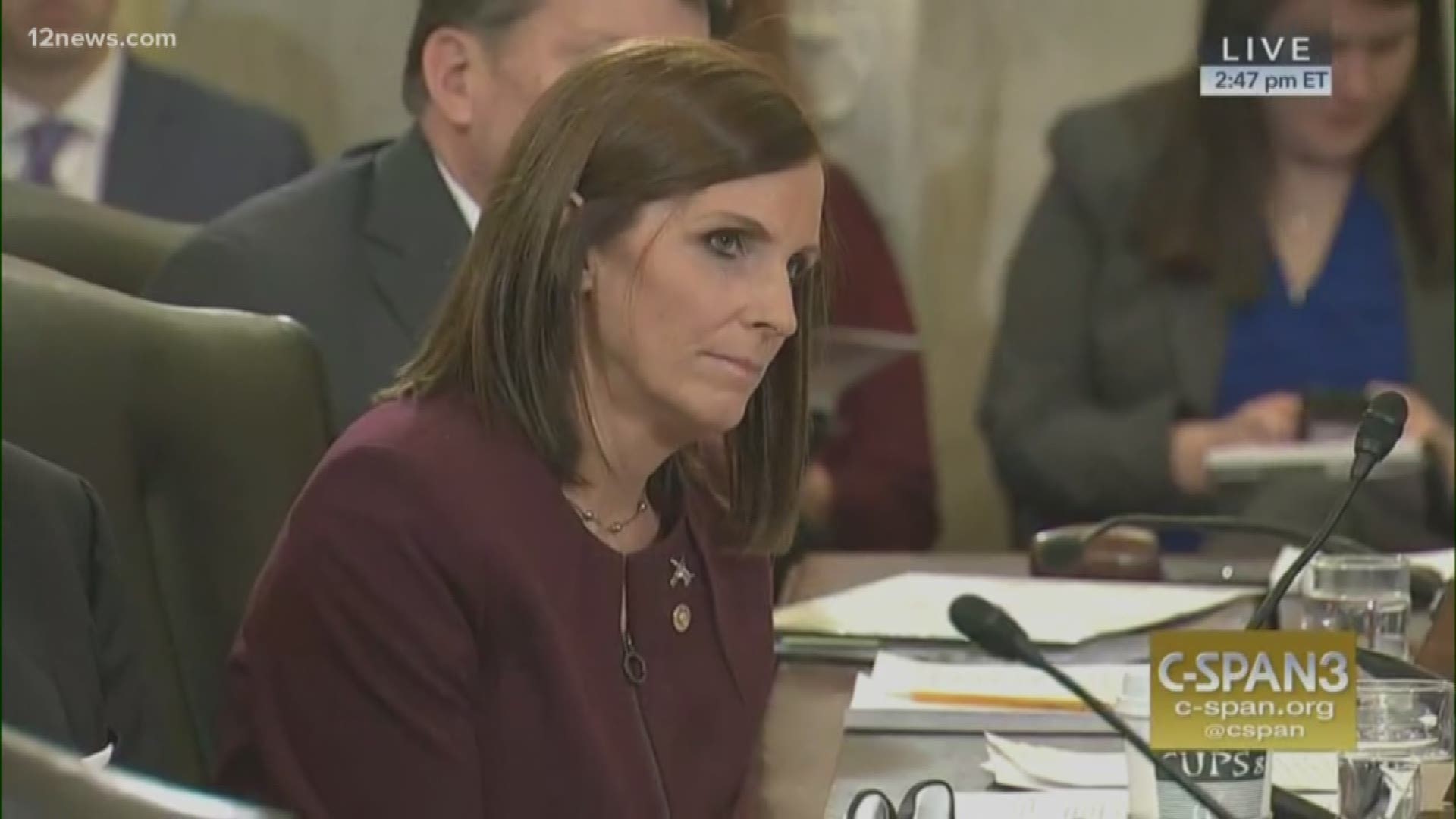Sexual assault survivors who served in the military met with Sen. Martha McSally last week to talk about changes they want her to support.
Trina McDonald, 48, and Stacey Thompson, 38, said they were both raped by their superiors during their teenage years after they enlisted in the armed forces.
McDonald said she joined the Navy in 1988. While she was serving in an isolated duty station on the Bering Sea, she said senior chiefs and master chiefs went after her.
“I would be drugged and raped three times while I was there. I was thrown into the Bering Sea in the final assault on me and left for dead,” McDonald said.
She said she didn’t report the assaults because the superiors she would have to report them to were her aggressors.
“I met with the senior chief and he was like, ‘I remember you,’ and I was like, ‘Oh, this is great,’ but what he said was ‘You weren’t the only one.’ They knew it was happening at my base and did nothing. He backed out of writing a statement for me because it would have indicated he also committed a crime by knowing it was happening and did nothing,” McDonald said.
Thompson said she enlisted in the Marine Corps in 1998. She said a sergeant raped her while she was stationed in Okinawa, Japan.
“My sergeant took me out of a night club, he drugged me, took me out of the night club, brought me on base, raped me in a barracks room, and took me back off base and left me on the side of the road at 4 a.m.,” Thompson said.
Both women started the social media movement #MeTooMilitary, which stems from the #MeToo movement fighting against this kind of crime.
Last week, they were part of a group of veterans who met with Sen. McSally in Washington to talk about sexual assaults in the military and to ask her to support the Military Justice Improvement Act (MJI), sponsored by Democratic Senator Kirsten Gillibrand of New York.
Thompson said the MJI Act would shift decisions about sexual assault prosecutions from commanders to military lawyers with expertise in these types of investigations. That’s because commanders currently handle sexual assault incidents in the military, Thompson said.
“I know that the military has made significant changes in the last decade to how they respond to sexual assault rape, and we have tried educating commanders, but the idea that we should allow them to continue to make that decision I feel needs to be changed,” said Thompson.
However, McSally said commanders should be trained to be fair.
“We must educate, select, and further educate commanders who want to do the right thing but who are naive to the realities of sexual assault. We must ensure all commanders are trained and empowered to take legal action, prosecute fairly, and rid perpetrators from our ranks. And if the commander is the problem or fails in his or her duties, they must be removed and held harshly accountable,” said McSally on Wednesday as she spoke about her sexual assault.
McSally revealed she was raped by a superior officer while in the Air Force, and now she’s calling for a change saying it’s an all too common problem for women in the military.
“For sure, I don’t want people to think like, 'Well, maybe it’s just all these problems we have now that there are women in the military.’ Think about it, if you have a predator, if you have a rapist who’s serving in uniform, you don’t deal with it by keeping a woman out of their unit—because that predator is going to go assault someone else,” said McSally in an interview with CBS news.

